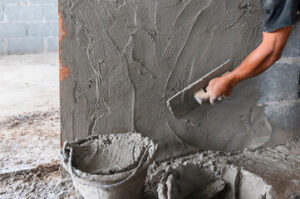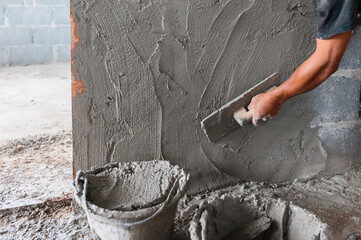Masonry is a worldwide fraternity emphasizing self-improvement and social betterment through individual involvement and philanthropy. Its principles are based on morality, charity, truth, and the laws of God.
 Masonry materials may be bricks, stone, or concrete blocks. They are often used in construction to add a look of permanence. Pro Angle Masonry Charleston also provide insulation against daily fluctuations in temperature.
Masonry materials may be bricks, stone, or concrete blocks. They are often used in construction to add a look of permanence. Pro Angle Masonry Charleston also provide insulation against daily fluctuations in temperature.
Masonry is a unique construction technique requiring advanced building and construction standards knowledge. Most masons attend a mason school or apprentice with a professional to learn the skills of the trade. Many of these students also complete a college degree in a related field to prepare for career advancement. Masons can also earn industry certification to improve their job prospects.
A mason can use a variety of materials to create structures, including brick, stone, concrete and glass block. These skilled professionals can help design buildings, renovate historic properties and restore damaged structures. They may also be involved in construction project management or supervision.
Some masons work independently as self-employed contractors. They may set up a website or social media business page to promote their services. They can also network with other masons to find jobs and secure referrals. In addition, they often participate in community service activities to build relationships and gain visibility in the community.
Education in masonry includes lectures, demonstrations, and hands-on training. Students study the elements of trowel trades such as brick, stonework, block, and tile, as well as other masonry processes such as plastering and cement work. They also learn about safety procedures and building codes. Students also participate in campus work projects and apprenticeships to gain practical experience. This helps them prepare to become journeyman masons, job site foremen, and construction supervisors.
Honesty
Masonry is a system of morality, veiled in allegory and illustrated by symbols. It draws on the legends and myths of medieval stonecutters and masons to teach its lessons, such as that a man should never reveal his secrets. The Craft also teaches that honesty is the basis of all morality, and it requires that a Mason abide by laws of the state and country.
Some people believe that Freemasonry is a secret society, and that members are forbidden to talk about their membership with non-Masons. But this is not true. The secrecy of the fraternity is intended to heighten interest in its teachings, which are based on allegory and symbolism. The secrecy does not mean that Masons are hiding anything or anyone.
Those who criticize Freemasonry are often suspicious that its apparent practice of charity and brotherly love may mask a cynical, self-serving agenda. They argue that the rituals are designed to allow Freemasons to promote their own causes, and that they encourage the use of blood oaths as a form of pressure, which could be used for corrupt purposes. A look at the texts of these rituals reveals that they impose harsh penalties upon those who betray their oath. These penalties are not only immoral, but also inhumane. They would legitimize a grotesque, selfish malevolence towards those who are not Masons. Freemasons are not blind to these flaws, but they strive to correct them.
Compassion
Freemasonry teaches a respect for every person and a belief that the individual is in the final analysis more important than any group or organization. Masons are taught that the world is not merely here for our pleasure and that we have a duty to leave it better than we found it, whether by working on civic projects or by helping those who need assistance, such as the blind, mentally handicapped or elderly.
The principles of Masonry are kindness in the home, honesty in business, courtesy toward others and dependability in work; compassion for the unfortunate, resistance to evil, help for the weak, forgiveness for the penitent and, above all, a living practicing reverence and love for God. Masonry is not a religion but encourages everyone to express his own beliefs and to practice a religion of his choice.
Often, men join Masonry not because of any religious or political affiliation but because they want to be better and believe there is more to life than the pursuit of wealth and self-gratification. A man who becomes a Mason is willing to stand by his friends and brothers in good or bad times, because he knows that there is more to life than “self”.
Masonry insists on the principle of toleration, and a man must be a man (it’s a fraternity after all) and sound in body and mind. He must also believe in a higher power and be of the legal age required by the laws of his state.
Love
In Masonry, love is a core principle. It manifests itself in the practice of charity, one of our principal tenets. It also manifests itself in the way we treat our brothers and in how we conduct ourselves in our communities. Ultimately, our brotherly love is the foundation of everything we do.
In this study of the 18th-century masonic project through the lens of male friendship, Loiselle explores the nature and meaning of a fraternal culture. He examines a wide range of archival sources from the Bibliotheque Nationale and Grand Orient, including manuscript rituals and speeches. He argues that the masonic temple was a sanctuary of friendship. It provided a place for men to find moral resources for navigating an era of social tension and political revolution.
One of the main tenets of Freemasonry is brotherly love, which means that each man should have the same regard for his fellows. This is also expressed in the second tenet, relief, which requires Masons to help those in need.
Masonry unites men of every country, sect, and opinion and causes true friendship to exist among those who might otherwise have remained at a perpetual distance from each other. In fact, a man’s love for his wife may wax and wane like the moon, but his love for his brothers shines eternally. This is a lesson that many people in this world could take to heart.
Trust
As a fraternity, freemasonry promotes honesty and integrity. Members are taught that they must be good citizens and support their community. They must also respect others’ opinions and work together for the common good. Moreover, they are expected to have a religious outlook. They must be able to look at a wayside puddle and see something beyond mud or into the eyes of their forlorn fellow man and know that they are not alone in this world.
Masons are required to be at least the legal age to become a member of the lodge and have a clean criminal record. They must also believe in God and be of sound body and mind. However, these are only the formal requirements. Masons must also be willing to learn and grow as a person. They are encouraged to attend college and participate in professional development courses. They are also expected to take pride in their work and be honest in all dealings with other people.
Freemasonry is not a religion, but it does teach that doing good works makes life more meaningful. It does not promise a man entrance into heaven — that is a question for a religion, not a fraternity. But it does encourage men to be better Christians, Jews and Muslims. And it stresses the importance of education, which is not a religious requirement but an important part of living a moral and decent life.
Knowledge
Masonry is a trade that requires both theoretical and practical knowledge. Masonry students learn how to use masonry units, such as bricks and concrete blocks, to build structures. They also learn how to create blueprint plans for masonry projects. Masonry skills are important for advancing in the field of construction, as they can help you become a project manager or supervisor.
Masons must know how to read and interpret blueprints, including understanding the meaning of symbols and abbreviations. They must be able to convert between distance-measurement systems, and they must understand how to use various tools used in the masonry trade. They must also be familiar with the history of masonry, including ancient and cutting-edge techniques.
There are a number of different types of masonry structures, and each one has its own design requirements. For example, concrete masonry is high in compressive strength and low in tension strength, while stone masonry is higher in tension strength and lower in compression strength. Masons must have a good understanding of the strengths and weaknesses of each type of masonry structure to ensure that they are using the right materials for each application.
Masons should also have a thorough knowledge of the safety precautions needed to work on elevated surfaces, such as using personal fall protection and working safely with scaffolding. They should also have a basic understanding of physics and chemistry, as well as how to operate power tools.

